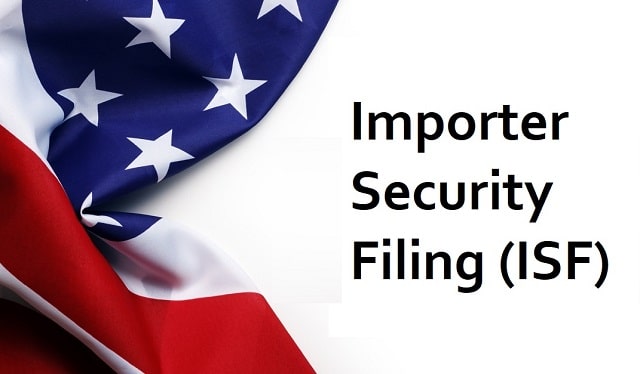
Companies that are involved in the international shipping and importing of goods already know they need to comply with ISF filing, but if you’re just getting into the business, you may not understand this extremely important component of doing business with overseas companies. Before you ever import a single item, you need to make sure you understand ISF Filing to avoid fines and penalties.
ISF Basics
In 2009, the United States Customs and Border Protections (CBS) department implemented the Importer Security Filing (ISF) requirement for importers who receive goods via ocean shipments from any country other than the United States. The law mandates that importers or agents of importers and the ships they use to import their goods file specific data electronically to allow the CBS and the Department of Homeland Security to identify risky shipments to prevent smuggling and increase the security and safety of cargo.
The ISF requirement is only for shipments that arrive by ship and does not affect shipments that are imported by other modes of transportation, including by air. Additionally, you do not have to file an ISF if you ship bulk cargo. Bulk cargo is defined as loose, homogeneous cargo that is not stored in boxes, bags, or crates aboard the ship. Examples of bulk cargo include grain, coal, oil, ore, bricks, lumber, steel beams, etc.
Types Of Data Filed
There are three types of data that can be filed in an ISF. The first is a set of 10 elements that are the responsibility of the importer. These 10 items must be submitted 24 hours before the cargo is set to arrive in a United States port. Among the 10 data elements are the seller’s name and address, the buyer’s name and address, the importer of record number, the consignee number, the manufacturer, the country of origins, and other such data points. The vessel operator is responsible for the next two data elements, which are the vessel stow plan and container status messages.
Most shippers will only use these first two sets of data when filing their ISF. This is known as the ISF 10+2 filing. Cargo that is designated as T&E cargo (transportation and exportation) only requires five data elements on their ISF. This is cargo that is going to be immediately exported from the U.S. to another country after first stopping at a U.S. port. These goods are not going to be staying in the country, so there is less information required.
Important Considerations
All ISF filings are done electronically, so there is no form you can fill out in person. If you need to make changes to a filing, this must be done before the ship carrying your cargo docks at the port, and only the person who submitted the filing can make the changes. Failure to file an ISF properly, on time, or at all will result in a $5,000 fine per infraction with a maximum fine of $10,000 per shipment.
At one point, there was some leniency applied by CBS for shippers who filed late or whose filings were incorrect. However, that leniency period has long expired and there is no more “three strikes” policy. It is also important to know that your cargo can be detained for inspection and any ISF violations found during the inspection will result in fines.
You can have a Licensed Customs Broker handle the filings for you, which lowers the odds of making a mistake when filing your ISF. You can’t really afford to have errors on your form or forget to file it altogether. Hiring a Licensed Customs Broker is an insurance policy against fines.
Conclusion
If you’re new to the international shipping and importing industry, read up on ISF filing to make sure you’re always in compliance. It will save you a lot of headaches and hassles in the long run.
